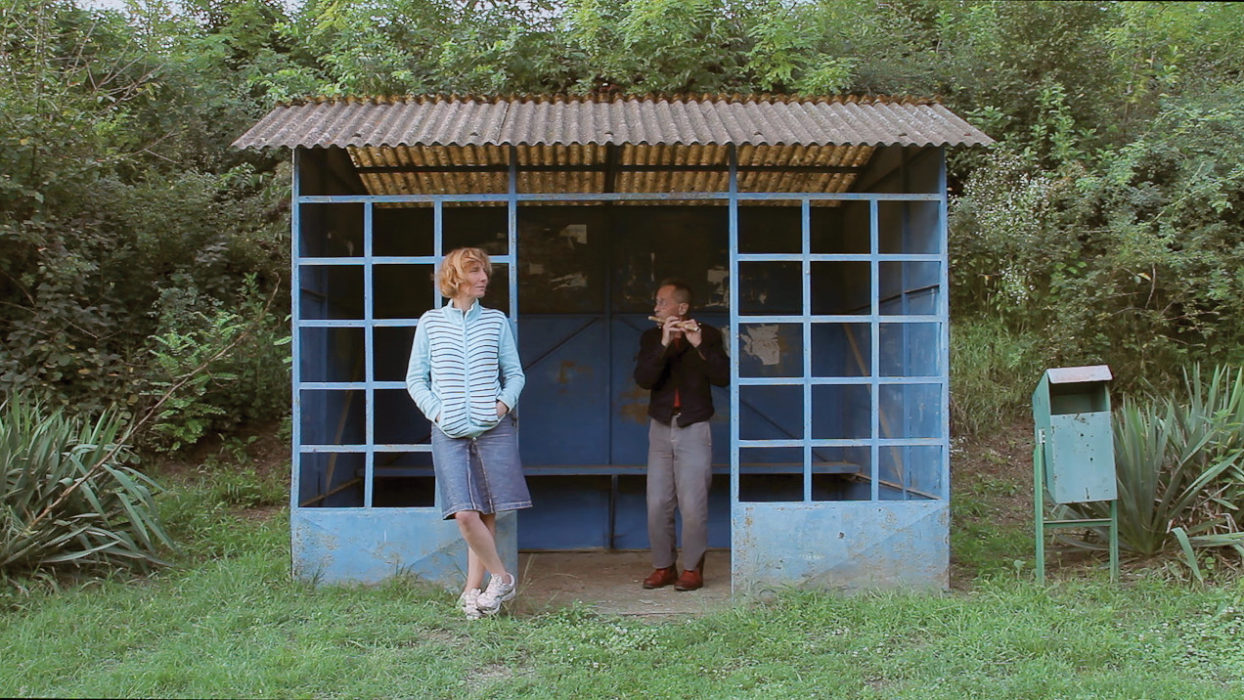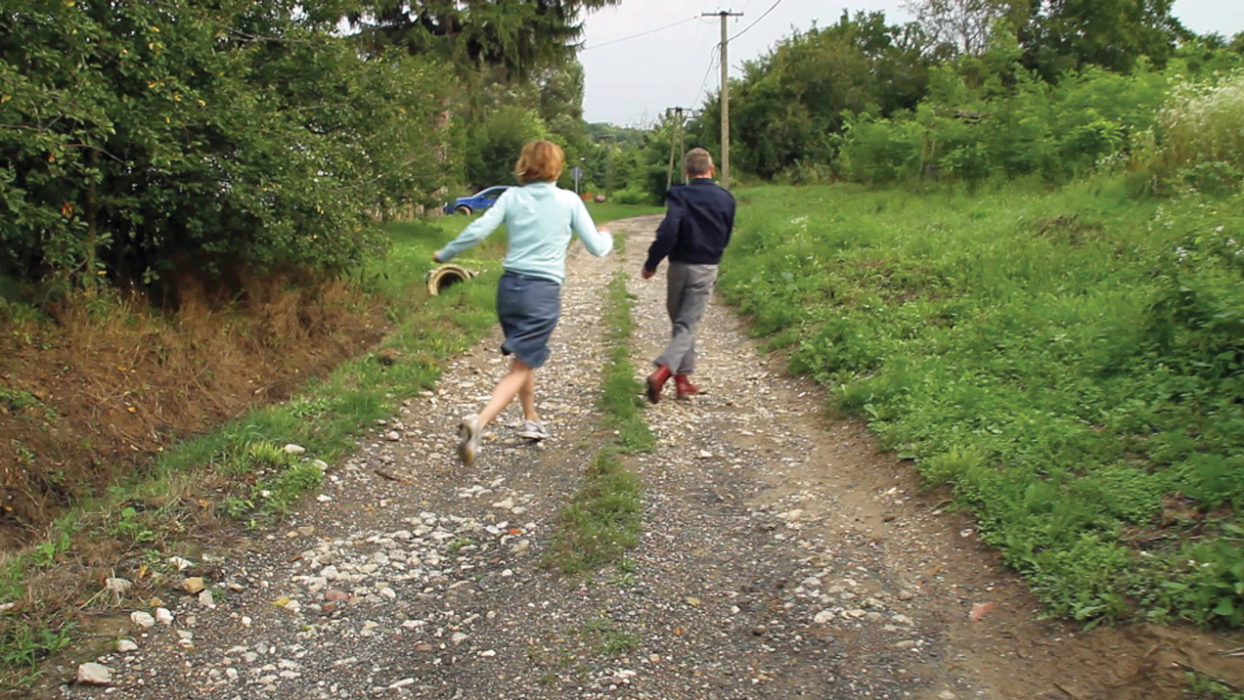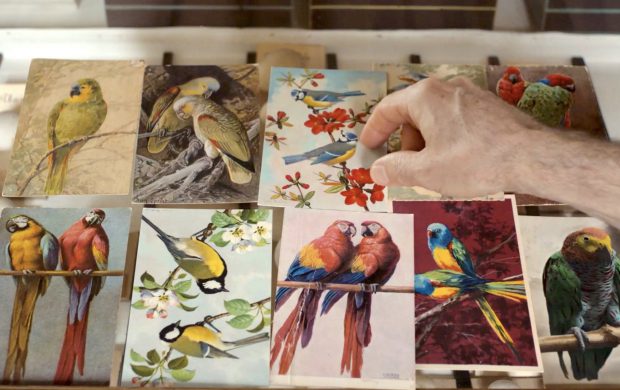Didier’s Letters
“Is it true that one can keep a young woman through writing? A long correspondence of 149 letters, this film is based on the letters that my brother Didier wrote to me. It explores how writing and the experience of a hybrid language create a film about love.”
Didier is the brother of Noëlle Pujol. Over the years, he wrote her one hundred and forty-nine letters about his daily life and his longing to see her again. He loves her madly, and from the place he finds himself, writing is the only way of connecting with her. This writing is no one’s but his. Somewhat akin to Russell Hoban’s Riddley Walker, where the narrator reinvents writing long after it has been lost, his writing is born out of orality to contort words and reinvent syntax. And it is this eminently poetic, fabulous and down-to-earth material, running ahead of itself, and all the more powerful as its sole purpose is to send messages, that Noëlle Pujol hands to two great actors, Nathalie Richard and Axel Bogousslavsky. One summer, in some anonymous rural setting that the filmmaker names the land of Didierlangue, they speak, repeat, fine-tune and vary the letters of this distant brother. They each in turn offer or receive, speak or sing, alternately or together, absorbed by the text or accompanying it with dancing or a flute melody, like a lament or a celebration. The text requires their concentration and their ear. For what the message demands gives body to the bond, and this bond is far from simple. For the love that these letters express in the open air goes back to childhood’s forbidden games, communicates a desire of promiscuity and control that plays out in the physical relationship between the two actors as they intertwine their bodies and their words. This is how a love film is made, and one of the freest films ever as it knows what barriers language, love and freedom have to defy.
Antoine Thirion
Noëlle Pujol; Pickpocket production
Andreas Bolm and Noëlle Pujol
Claire Atherton
bollomat@hotmail.com




